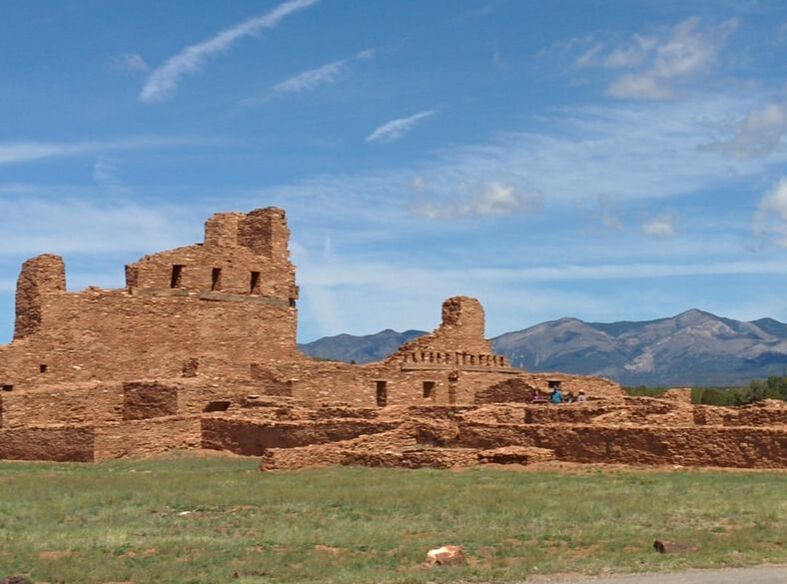|
The SWERV program’s goal is to create safe, courageous space for young adults exploring social justice, leadership, vocational discernment, and spiritual practice in the context of global pandemic, racial reckoning, and climate chaos, as lived out in communities in the borderlands of the United States’ desert southwest. Our vision is of a world where all are free to be who God has created them to be.
Volunteers with SWERV will engage in community living, spiritual practices, professional development, and anti-oppression education while serving a borderlands community, responding particularly to needs created by the dual pandemics of covid-19 and white supremacy. |
“We know we’re facing trying, unprecedented times — the dual pandemic of COVID-19 and COVID-1619 that began in terms of how our nation was founded.” |
SWERV Focus Areas:
- Intentional community – Volunteers live together and explore what it means to intentionally practice economic interdependence, mutual support, strong communication, and collective sharing of resources. In intentional community, volunteers are called to love and support each other while working through generative conflict. This way of life is an antidote to how white supremacy and capitalism favor independence, individual success, and politeness over collective liberation.
- Spiritual practice – Volunteers are invited, with their community, to enter into a deeper relationship with their own faith. Through connections with local worshiping communities, individual and community practices, and engagement with deep questions, volunteers develop grounding in sacred rituals and traditions that draw them close to the Divine. Sustaining your own connection with the Holy is a key part of building resilience for a lifetime of seeking justice and loving kindness.
- Vocational discernment & professional development – Volunteers will engage in vocational discernment and professional development supported by program staff. Both vocational discernment and professional development work will uncover and explore complications of privilege related to race, class, gender, and more, to support the growth of volunteers into justice-focused leaders. As people of faith, volunteers are challenged to balance the desire to live a life with integrity to the pull of the Divine and the need to provide for basic human needs.
- Anti-oppression education – Volunteers will participate in service, wrestle with new ideas, and build relationships with people who have different life experiences -- all of which are educational. Through personal reflection and community conversation, volunteers will make meaning out of these experiences and expand their skills for critical analysis and creatively imagining alternative worlds. Volunteers will practice recognizing and speaking against structures of oppression in the surrounding context, including within the program itself and their work placements. This is education with an agenda: to raise the consciousness for justice of all who participate, name interlocking oppressions, and live into the story of liberation. No one is free until everyone is free, and all of God’s children are called to work for a better world.
- Volunteer service – Volunteers will give their time and energy to do work identified as useful by partner organizations. Serving with neighbors gives volunteers an opportunity to build authentic relationships and learn first-hand as they work alongside local leaders and experienced volunteers. Service provides a kind of learning lab where volunteers can build community outside their houses, test out vocation, practice professional skills, and be transformed by how partner organizations are resisting oppression.
What SWERV offers:
|
What SWERV asks of volunteers:
|






